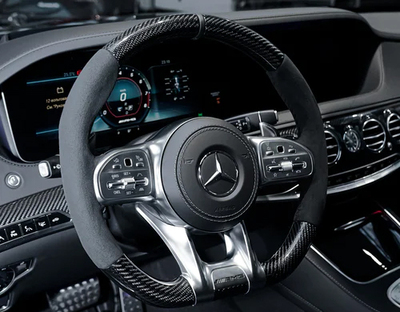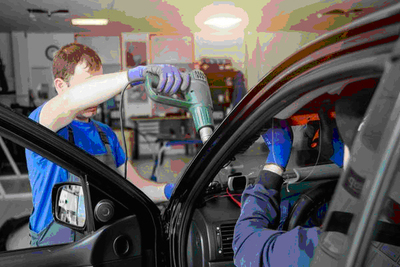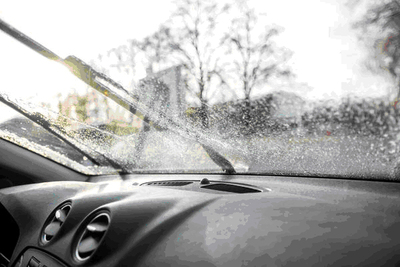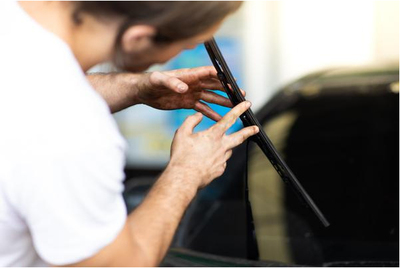6 Reasons your Steering Wheel is Making a Noise and How to Fix it?
Your driver's ability to react to any road issues depends majorly on the car's steering wheel. It has a huge role in your steering as well as a suspension system. If while making a turn, your steering wheel makes noise, it needs to be fixed. Any extra or unnecessary noise from your car is a call for help.
Sharp turns can cause a lot of stress on your steering systems. This eventually wears out or causes whining sounds while driving on the road. Often ignored by driver's or car owners, it can be a future threat to your vehicle.
Both suspension and steering system work together to allow tires to make a turn. It requires plenty of fluid and a healthy belt to make a smooth turn. The parts that are mostly affected are the control arms, ball joints and steering knuckle.
What Causes Steering Wheel Noise?
If there is any fault in the steering system or suspension, it becomes difficult for them to manage your car's weight. Even though lubrication is great to increase the lifespan, these car parts will slowly fail. Let's check out what causes steering wheel noise!
Dry Jounce Bushing: The front strut has something that is referred to as a jounce bushing on top of it. At the point when the bushing gets dry, making a turn will produce squeaking or whining noises. These sounds will deteriorate more if you hold back to fix the issue.
Faulty Power Steering Rack: A whining sound while turning could be the consequence of a damaged power steering rack. The whining sound will be generally noticeable while driving at lower speeds. Remember that a terrible belt or vane pump can create this situation.
Clogged Power Steering Fluid's Reservoir: Your power steering system needs lubrication as it cannot perform without fluid. To keep the dirt out, the fluid is stored in a reservoir with a filter chamber. Even with so much precaution, your reservoir can still be clogged that will eventually start creating noises. You can hear this noise when making sharp or normal turns on the road. Ignoring it can be a big mistake.
Worn Struts and Shocks: Your struts and shocks might work for a long time in your vehicle, yet ultimately, they will wear out and turn faulty. The primary sign is disturbances when you make a turn. If the parts are not replaced, the vehicle will start to bounce during turns on the road.
Damaged Steering Column Bearing: When your steering wheel is making noises during a turn, it can be due to a damaged steering column bearing. This can cause the plastic on the rear of the steering wheel to rub against the cowling on the controlling section.
Damaged Ball Joints: The steering knuckles and control arms can support the movement with the assistance of rotating conjunctures. These joints need oil to keep themselves from drying easily. Like all bushings, the control arm bushings will wear after some time and in the long run, will turn sour. This will bring about a squeaking sound as you turn the wheel.
Types of Sound Your Steering Wheel Can Make During Turns
Your car's steering wheel can make a variety of sounds besides rubbing noises if the steering or suspension system is faulty. It can create whining, popping, clicking or screeching noises during turns on the road. Let's see what each type of sound means!
Whining- This kind of noise happens if there is an issue with the steering pump.
Popping- This noise indicates that the suspension system is either damaged or worn out.
Humming- This kind of noise means that the car's weight distribution is uneven.
Rubbing- This kind of noise is created when there is a problem with the upper bearing of the system.
How to Fix Your Car's Steering Noises?
Steering wheel noises are not very difficult to detect. It can be diagnosed at any repair centre. Your car servicing professional can easily check your suspension system as well as the steering system to find the cause of the noises.
However, there are times when all you need to do is lubricate your car's suspension system to get it back on track. Any damaged part that needs repair or replacement, should be done.
Before starting to fix it, make sure you understand which part of the steering system is at fault. As we know that each noise depicts different issues, learn what is causing it in the first place.
Though trying to fix this problem requires special skills and knowledge, it is better to get the help of your local mechanic. Opt for a full car service and get the complete diagnosis of your vehicle from professionals.
The Bottom Line
We hope that you understand how diagnosing the root cause of the issue is important. Another essential thing is to get it fixed before your car's suspension and steering system gets worse. Make sure you understand and notice the symptoms to prevent noises from getting louder with time.
Check several parts like power steering fluid reservoir, shaft joint, power steering fluid levels, control arm bushings, steering rack, shocks and struts and many more to have safe and sound driving!







